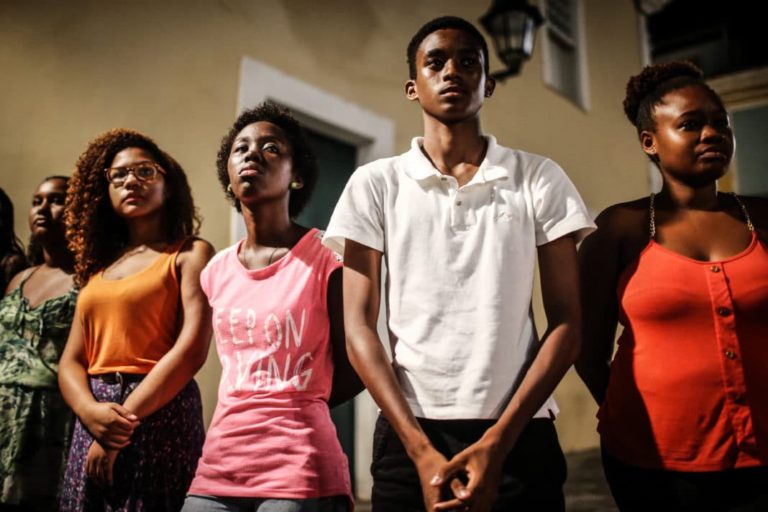Brazil’s Ongoing Race Problem: Recent Study Uncovers Shocking Treatment of Darker-Skinned Children in Interracial FamiliesPosted in Articles, Brazil, Caribbean/Latin America, Family/Parenting, Media Archive, Social Science on 2017-07-10 02:22Z by Steven |
Atlanta Black Star
2017-07-01
 SALVADOR, BRAZIL -Social psychologist finds Black Brazilian children in interracial families face shocking racism. (Photo by Mario Tama/Getty Images) |
“The most shocking story I heard was told by a young woman, a university student who came to see me… she was phenotypically ‘Black’ but her mother was ‘white.’ She told me that when she was little, her mother would sing a lullaby with these words: ‘Plantei uma cenoura no meu quintal / Nasceu uma negrinha de avental / Dança negrinha / Não sei dançar / Pega no chicote, ela dança já’ [I planted a carrot in my backyard. / It sprouted a nigger girl in an apron. / Dance, little nigger girl! / I can’t dance. / Show her the whip, she’ll dance alright.] Her mother’s lullaby wasn’t just racist, it was a slave owner’s song.” — Social psychologist Lia Vainer Schucman from a June 2017 interview with Agência FAPESP in Brazil
Perhaps you’ve heard of the ‘bleach bath,’ a popular process designed to significantly lighten one’s skin. Or maybe the clothespin, the laundry drying device that doubles as a nighttime nasal clamp to narrow the width of what is regarded as a phenotypically Black nose. Here in the 21st century, such tragic racialized practices and psychoses are, unfortunately, still alive and well in countries across the globe.
This acknowledged, there is a common perception that the more racially diverse and interracial a society and its relationships become, the less racism it will endure. It is a questionable line of reasoning particularly prevalent in Brazil where racially mixed societies and families are the norm. It fuels the popular national narrative that racial prejudice cannot exist in South America’s largest country since “somos todos iguais” (“we are all equal”).
A recent study by social psychologist and researcher Lia Vainer Schucman says otherwise. In it, Schucman interviewed interracial families from regions across Brazil willing to discuss the manifestations and impact of racism within their units as part of her postdoctoral work at the University of São Paulo. Sponsored by Agência FAPESP, a media service of the São Paulo Research Foundation, Schucman’s research is the subject of her upcoming book, “Famílias Inter-Raciais: Tensões entre Cor e Amor” (Inter-Racial Families: Tensions Between Color and Love)…
Read the entire article here.

